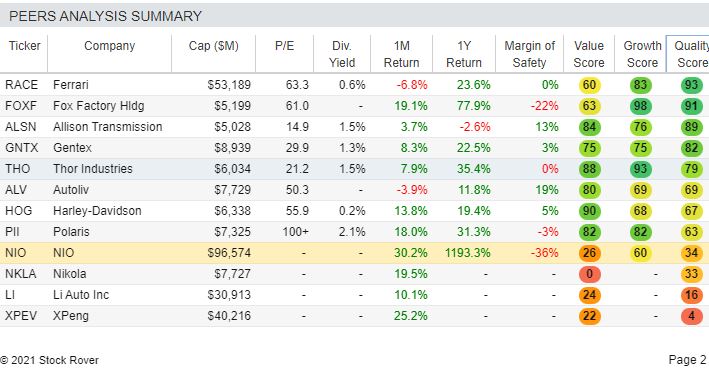NIO’s (NYSE:NIO) relentless uptrend, which accelerated in the last few months, is showing no signs of fatigue. Nio stock is benefiting from several stock sales and convertible notes offering. The cash raised is not hurting Nio stock yet. Demand for the hot stock gives the company many more opportunities to strengthen its balance sheet.

Nio needs to raise as much cash as it can to sustain strong liquidity. An economic slowdown or a sharp drop in EVs appears highly unlikely.
Still, the company faced near bankruptcy at the height of the coronavirus lockdown in China earlier last year. Besides, the latest product expansion will need more capital spending.
Nio Stock Still Very Hot
Nio’s management took advantage of the strong investor interest by raising $1.3 billion in convertible senior notes. It can afford to take on debt because interest rates are so low. For example, the 2027 notes will pay 0.5% annually and paid out semiannually. The debt management flexibility will not interfere with Nio’s capital requirements. It may carry out its product expansion plans without a disruption in cash flow.
Since Nio is not yet profitable, the rising cash burn could have pressured its balance sheet. So, with strong unit sales in the last month, Nio may expand its line-up.
Earlier this month, the company revived its electric sedan project. It unveiled the ET7, promising autonomous capabilities. The EV will eventually support a solid-state battery. The solid-state battery development is critical in differentiating Nio from the competition. All EVs are practically the same in range, styling and performance. But having an EV powered by a solid-state battery pack would increase the range to around 621 miles.
Backward Compatibility
Nio is not restricting the battery pack to the ET7. It will work on the existing models. Fans may expect this model to consume slightly more electricity but not enough to hurt the range. For example, the EV will have a 12.8-inch OLED display. Qualcomm’s (NASDAQ:QCOM) Snapdragon processor will power the AI robot feature and digital instrument cluster.
Before the recent financings, Nio had more than $3.5 billion as of Sept. 2020. Besides capital expenditures to support its battery leasing service, the company needs to develop autonomous driving. Already, markets expect an increase in spending in this area. NXP Semiconductors (NASDAQ:NXPI) traded at a new high recently. Euphoria for the latest battery technology lifted QuantumScrape (NYSE:QS) to unsustainable valuations in December 2020.
Fortunately, Nio already has a battery sharing network system in place. Its research and development in newer ones will not burn away its cash.
Fair Value
Wall Street analysts are cautious about the upside potential in Nio. The average price target is less than $60, based on 14 analyst ratings. Based on its fair value, the stock is worth below $40, according to Tipranks.
Compared to its peers, Nio is at the bottom on a quality score. This score compares the company’s profitability and balance sheet. And since Nio is not profitable, its return on invested capital and gross margins are unacceptably low.

Nio’s stock score is on the low side compared to its peers
When Nio reports results next month or later, investors will once again look at the delivery figures. They are still willing to overlook the lack of profitability. The company is expanding globally and is aggressively taking market share. Eventually, it will beat Tesla (NASDAQ:TSLA) in some markets. That opinion assumes that consumers will prefer Nio’s styling and feature set over Tesla.
Conversely, Tesla could still defend its global market share by lowering its price after cutting operating costs. With Tesla having strong product support and earning the perception of better quality, that would pressure Nio.
Strong buying momentum will likely send Nio shares to new highs in the year. Traders who already missed out on buying the stock at below $20 will have to pay a premium today. That is worth it if Nio’s growth is faster than the market realizes.
On the date of publication, Chris Lau did not have (either directly or indirectly) any positions in the securities mentioned in this article.
Chris Lau is a contributing author for InvestorPlace.com and numerous other financial sites. Chris has over 20 years of investing experience in the stock market and runs the Do-It-Yourself Value Investing Marketplace on Seeking Alpha. He shares his stock picks so readers get original insight that helps improve investment returns.
